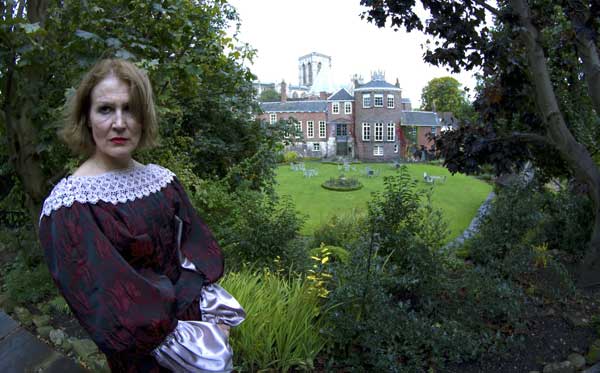
Review: Storyville: Hotel Folly – Folie A Deux (BBC2, Monday)
Elvis Costello: Mystery Dance (BBC4, Friday and Saturday)
We seem to be living through a golden age for British-made documentaries, many of which are getting an (albeit limited) cinema release.
Just a few random selections that have made it to the big screen include Bart Layton’s The Imposter, in which a teenager vanishes in Texas, the TT Races film Closer To The Edge, and Out Of The Ashes, about the Afghan national cricket team.
That was a BBC Storyville documentary, the home of much fine recent work. Another cracker from the same source, made right on our doorstep, appeared on television this week.
Kim Hopkins’ Hotel Folly – Folie à Deux, shot over five years, has already been shown at York’s City Screen.
It follows Helen Heraty and her partner John Edwards as they try to turn a run-down, historic building with 72 rooms into a hotel. At least some of this story will be familiar to most local people, as a result of Helen’s battles with the National Trust, York’s planners and the city council.
Helen is the unquestionable star of the show, as she copes over half a decade with the credit crunch, looming bankruptcy and, ultimately, personal tragedy. She’s got a full design team, an accountant and lawyers in her squad and seven demanding children who don’t always give her an easy ride.
Helen’s got a lot on her plate and it’s hardly surprising that one son, in a classic case of attention seeking, puts out a bogus story at school that his mum is in hospital and might spend the rest of her life in a wheelchair.
She’s a wonderfully complex character, intense and occasionally a little intimidating. Sometimes you’d like to throttle her.
Why can’t she at least start in a more conciliatory way with the neighbours? “Sit down WITH HER?” she asks. And is it really wise to say on camera to the tale-telling son that he is demented?

Helen seems to think the Daily Mail is aimed at people who cannot read but it’s the only newspaper we see in her home.
However, you can’t help being on her side. Just as often as the throttle manoeuvre, you’d like to give her a hug. She’s feisty and capable of laughing at herself, and as the film revealed she did have some difficult opponents in the opposite corner of the ring.
These are the staff and tenants of the National Trust, which owns the adjacent house and claims usage of the courtyard. The trust comes across here as an organisation which is perhaps just marginally more reasonable than the Khmer Rouge.
In 2008, with the debts rising, Helen talks of black holes and says: “We’re sinking.” Unhelpfully, valuers later put the property’s worth (Helen and John had paid £1.6m) in its current state at £500,000.
With nearby modest Edwardian terraces fetching half that sum, you ask yourself, as she must: “Are they serious?”
Helen is much more sinned against than sinning. A couple of well-fed bankers make sympathetic noises. But no one has the courtesy or courage to get back to her to say they can’t help.
Why did conveyancing lawyers not spot the potential problems with the rights of way? Why was there no earlier mediation? The trust must have been involved in such issues elsewhere, and often enough.
As human drama, it could not be faulted. The final shots of the family on a misty beach were truly poetic
Helen’s children continue to provide moments of aggro and comic diversion. Even the hungry cat’s a character, using an educated right paw to draw attention to an empty saucer, then (judicious editing here, no doubt) catching and eating a moth, and purring contentedly.
Helen Heraty and John Edwards came together via a whirlwind romance. The film’s title Folie à Deux, was dreamed up by John. He explained that bringing together two slightly off-the-wall people multiplies hugely the potential for madness.
Towards the end, we learn that John’s words have encapsulated the enterprise perfectly, but are also utterly heart-breaking.
Hopkins’ documentary was not without its shortcomings. It would have been helpful to know more about work in progress, and where the money was going. Neither do we get much impression of the size and scope of the challenge. This property is so large that some rooms have probably not yet even been discovered.
But as human drama, it could not be faulted. And in the best traditions of humanist film, the final shots of the family on a misty beach were truly poetic.
Best TV moment of the last week for me came in BBC Four’s excellent documentary about Elvis Costello, Mystery Dance. His dad, Ross McManus, was a singer with Joe Loss and spent much of his time doing covers of current favourite pop songs. The film-makers dug out a 30-second clip of Trini Lopez’s big 1963 hit If I Had a Hammer, as performed in showboating style by McManus Senior and the band, with huge gusto and chutzpah. And he just looks like a really nice guy.
